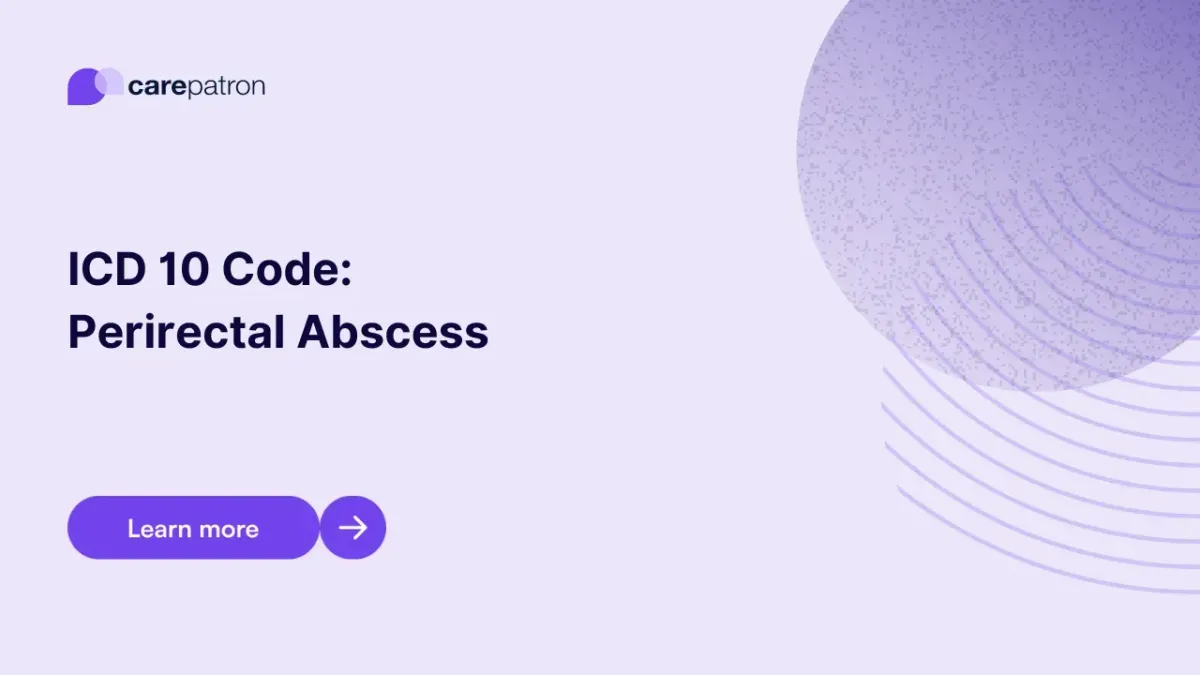
Perirectal Abscess ICD-10-CM Codes | 2023
Explore ICD-10 codes for accurate billing and diagnosis of Perirectal Abscess. Ensure precise medical coding with these codes.
Use Code
Commonly asked questions
Use a Perirectal Abscess ICD code when diagnosing a patient with a perirectal abscess, ensuring accurate medical coding.
Yes, Perirectal Abscess diagnoses are billable for medical billing and insurance claims.
Common treatments for Perirectal Abscess Diagnosis Codes include incision and drainage, antibiotics, pain management, and, in complex cases, surgical procedures.
EHR and practice management software
Get started for free
*No credit card required
Free
$0/usd
Unlimited clients
Telehealth
1GB of storage
Client portal text
Automated billing and online payments
